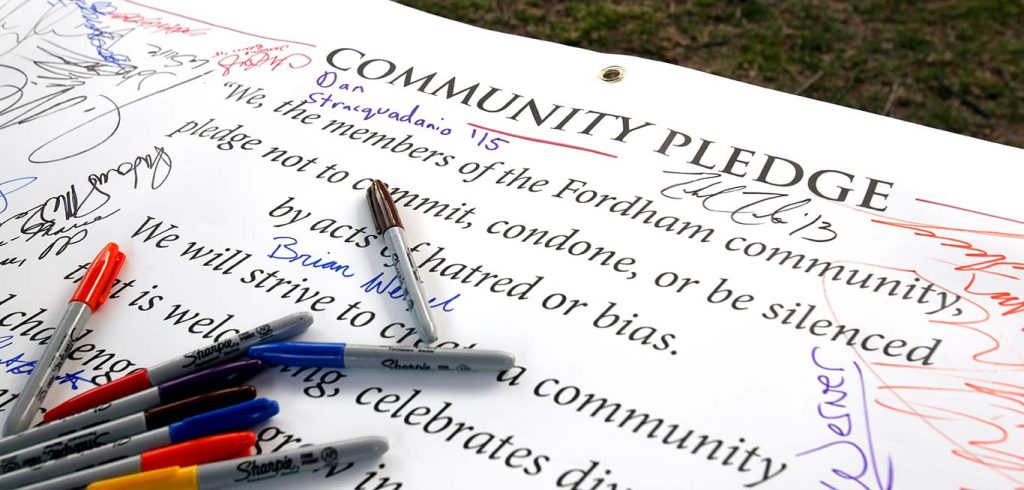The Undoing Racism Collective, a group of faculty, administrators, and staff from all corners of the University, is hosting a daylong racial justice “teach-in” simultaneously at the Rose Hill and Lincoln Center campuses.
Thursday, Oct. 29
10 a.m.-4 p.m.
Various locations
The teach-in will be divided into five sections and will be led by members of the psychology, theology, sociology, and English departments, as well as the Graduate School of Education, the Office of Multicultural Affairs, and Campus Ministry.
In addition to “History and Groundwork,” the topics addressed will be “Intersections of Identity & Identity Beyond Black and White,” “Religion and the Movements for Racial Justice,” “Microaggressions,” and “Becoming an Anti-Racist Institution.” Members of the Fordham community can visit the page for more information and to register.
Jeannine Hill Fletcher, PhD, an associate professor of theology who will participate in the first and last sessions of the day, said the teach-in originated with meetings between faculty and staff members who’d attended training at the People’s Institute for Survival and Beyond, which describes itself as an international collective of anti-racist, multicultural community organizers and educators dedicated to social transformation.
At Fordham, the group began meeting three years ago as the Undoing Racism Collective, said Hill Fletcher. In February 2014, in response to an invitation by Fordham President Joseph M. McShane, SJ, to have a university-wide dialogue on racism, it held its first open meeting.
Hill Fletcher said that the idea for the teach-in predated a recent campus incident where racist and anti-Semitic graffiti was discovered in a dorm on campus; the incident, however, illustrates the value of promoting racial justice through a campus-focused event, she said.
“A teach-in became pressing last year with the national events (such as) the deaths of Michael Brown and Eric Gardner, and the reality that, 50 years after Martin Luther King, we’re still not following though on the promises of the civil rights movement,” she said.
Hill Fletcher said organizers hope to offer shared language, history, and analysis that comes out of scholarship around issues of race to create a shared space where all feel comfortable speaking freely about a contentious topic. And it’s not just for students.
“At the same time we want to ask, how does Fordham as an anti-racist institution have an impact on all staff, faculty, and administration members?” she said.
“What are the ways in which Fordham moves us toward a fully inclusive world, through its policies, and its programming, the education it provides, and to whom it provides?”

